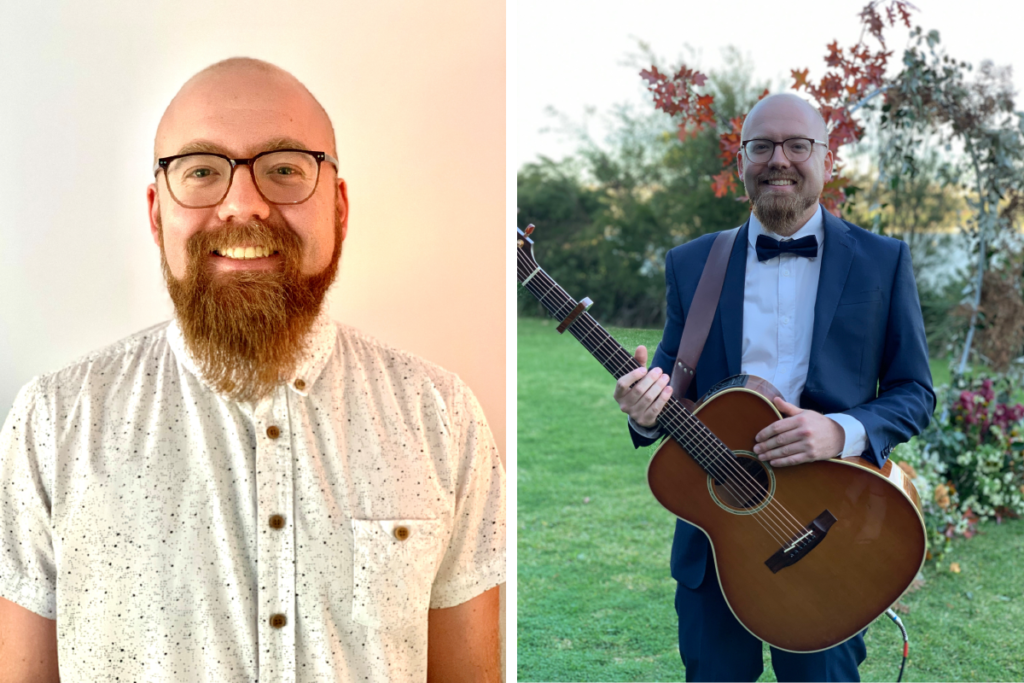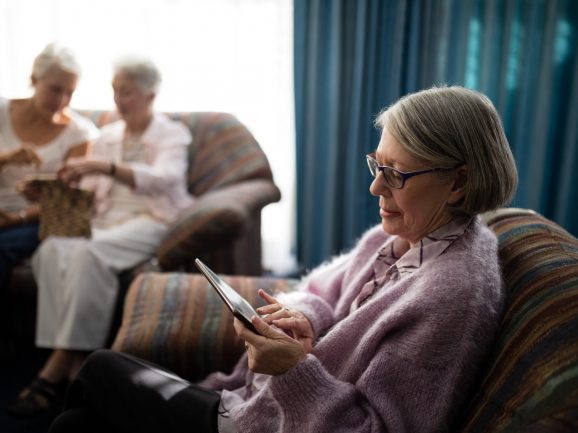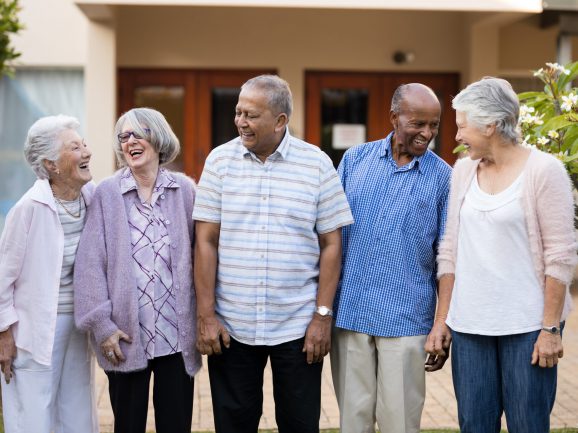Music therapy is a goal-orientated process and is helpful to increase the overall well-being of a person and quality of life. Engaging with music can release endorphins, help relax muscle tensions, lower blood pressure, a form of social interaction, and strengthen motor and communication skills. In ageing residents with dementia, there may be cases where a resident may present with behavioural disorders, and music therapy greatly helps improve any anxiety and lower incidences of aggression (Gomez-Romero et al., 2017). KOPWA’s Archbold House’s resident music therapist, Mark Fleming, has serviced our residents since June 2015.
Mark completed his Bachelor of Music and showed a keen interest after a Music Therapy lecture. Part of the process required him to complete an audition for the Master of Creative Music Therapy program, where he completed over 640 hours of supervised work placements across different clientele. Luckily for us, Mark decided to specialise within the aged care sector and is now running a successful business servicing a few providers in Sydney.
Mark recognises the popularity of the profession with an increasing number of people at University. Music therapy is increasingly being recognised as an Allied Health profession, and the level of research and funding has helped bring more awareness into this field of music. More providers acknowledge the benefits to their clients and therefore employing more creative therapists to be part of their residents’ clinical care plans.
Mark is enjoying the new building with many open spaces and areas to run group sessions. Each room has lots of room for social distancing to occur when he visits for an individual session. He looks forward to doing some group sessions in the open and manicured courtyard when the weather warms up.
Mark recognises the residents he services now have vastly different musical preferences across different ages and cultural backgrounds compared to when he first started as a Music Therapist. He enjoys learning about the clients’ lives and their favourite type of music. He spends a lot of time getting to know each resident through conversation and research of the popular songs from a particular era of preference appropriate for the residents. Mark is currently playing music from the 1950s and sixties, and all the residents appear to be enjoying the tunes.
Our residents are all in different stages of life and may have various clinical symptoms, including people living with dementia (Brotons & Marti, 2003). Mark finds that sometimes residents may feel more comfortable remaining in their rooms. Mark then uses individual music therapy sessions with the resident to ensure there is an opportunity for social interaction and self-expression. Music therapy helps alleviate anxiety for the person receiving the treatment and their family members. One resident looks forward to her weekly sessions, diligently writing down the songs she would like to listen to at her next therapy session. Mark tends to find out more about her week and any concerns she may not have shared with other people.
At Archbold House, we highly support Mark as our Music Therapist because we value both Mark, the music programme and its healing power. Mark is looking forward to meeting new residents in the new building and making music with them.
For more information on our services, please get in touch with us.
References
Brotons, M., & Marti, P. 2003. “Music Therapy with Alzheimer’s Patients and Their Family Caregivers: A Pilot Project”. Journal of Music Therapy, 40(2), pp.138-150.
Gómez-Romero, M.; Jiménez-Palomares, M.; Rodríguez-Mansilla, J.; Flores-Nieto, A.; Garrido-Ardila, E.M.; González-López-Arza, M.V. “Benefits of music therapy on behaviour disorders in subjects diagnosed with dementia: A systematic review”, Neurología, 32(4), pp. 253–263.




